In 2020,1 lakh people from the poorest sections of India received health, education, and monetary support from a USA-based organisation. These people were able to access free medical support, saw their children enrolled in formal education, and received training to sustain themselves financially.
Interestingly, this impact is the ripple effect of a journey that began in India. It’s the journey of Syed Hussaini, who left Hyderabad in pursuit of education, and would go on to help others in his home country in the future.
From India to Texas, and back
Syed completed his graduation in engineering in 1972. But due to a dearth of relevant jobs in the city, he could not find employment. He saw an opportunity in the west and decided to head there for higher education. After completing his Masters, he settled down in Dallas, for employment still evaded him back home.
“But I knew the pains of poverty. I had lived without money myself. Back then, the Nizam’s Charitable Trust gave me money as a scholarship, which funded my plane ticket. That’s how I made it. Otherwise, it can be very difficult to make something of yourself if you don’t have money and resources,” he tells The Better India.
From there, he went on to work in the corporate world for the next 26 years until he retired in 2007 at the age of 60. “Now I had the time to go ahead with this initiative,” he says.
An illustrious career that spanned over two decades might not have been possible if Syed had not received monetary help. This thought remained in his mind. “Many intelligent people in India don’t get a chance to go to school due to financial constraints,” he notes. He adds that he saw the poorest of the Indian society get caught in vicious debt cycles to fulfil basic fundamental needs of shelter, food and medication.
To offer support to such students so they could live up to their potential, he founded Support for Educational and Economic Development (SEED) USA in 2009, along with like-minded volunteers. The organisation was registered with the US government and began collecting donations from willing people. As Syed puts it, “All this impact has been facilitated by the community, I am merely a medium.”
Running as a charitable trust, this organisation ropes in the Indian community settled in the west, along with other willing people to contribute to bettering the lives of students back in India.
Hussaini shares that a myriad of programmes are currently being undertaken by the organisation. He says, “Our objective has been to help the poor go to school, enabling them to earn a livelihood.”
His aim remains to ensure the most basic needs of people are taken care of and the youth can complete their education in order to go on and build dignified lives for themselves and their progeny.
The seeds of SEED
To facilitate such impact, various mediums like print and digital media, as well as word of mouth are employed to announce a call to action from philanthropists and helping Non-Residential Indians (NRIs). These donations are dispersed through various activities conducted by Foreign Contribution Regulation Act (FCRA) permitted NGOs based in India like NAM Foundation in Hyderabad, The Calcutta Muslim Orphanage, Kolkata, and Zohra Women and Children Charitable Welfare Trust, Karnataka.
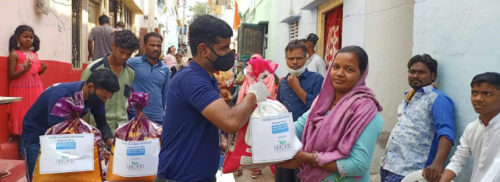
One of the main challenges Syed has faced in his journey has been to find the right projects to invest in. With a clear motive, the charity remains stringent in its compliance with regulations and selection of social organisations to associate itself with.
While many people reach out to partner and help, the board’s first question remains whether or not they are FCRA certified. This license is issued by the Indian government with the purpose of regulating receipt and use of foreign funds by Indian entities. In the case that they go ahead, a small-scale project is often undertaken to first ascertain the authenticity of the partner’s work.
The Widows & Destitute Families Support programme is one such SEED project that works to benefit women in dire straits. Through financial aid and employment, these women can support themselves and their children in the absence of a breadwinner.
“Currently, 550 such Indian women receive a monthly stipend from us on the condition that their children are put through school alongside ensuring basic sustenance for the family.” says Hussaini. This compensation varies between amounts of Rs 1,000 to Rs 7,000, depending on factors like needs, number of children, and current income of each woman.
In 2014, the organisation inaugurated the Residential Vocational Training Institute with Zohra Welfare Trust in Karnataka to provide skill-based training to unemployed youth and school drop-outs. Similarly, education tuition is paid for underprivileged children. A total of 800 college students have received scholarships in 2021.
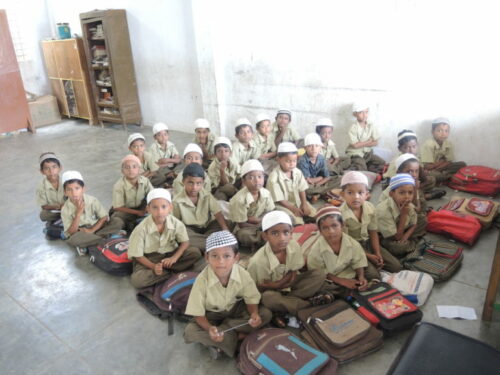
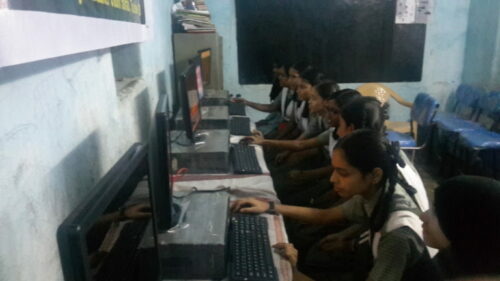
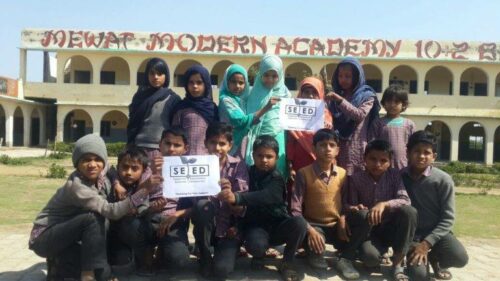
Apart from this, the charity has seeded free-for-all clinics in collaboration with NGOs focussed on healthcare. Mujtaba Askari, the founder of Helping Hand Foundation in Hyderabad, reveals about one such clinic, “Rabia Clinic is managed by us, right from the ambulances to treatment, and is funded by SEED. This clinic alone can see anywhere up to 200 patients a day.”
Sadhya, a washerwoman in the heart of Hyderabad, is the mother of one such patient. “My younger daughter has been suffering from diarrhoea lately. Earlier, any such medical emergency required me to shell out an enormous amount of money that would go into commuting and buying medicines. But since people told me about Rabia, I feel secure about my children’s health. My entire family consults at the clinic when needed and their diagnosis and treatment is undertaken free of charge,” she relates joyfully.
There are around 13 such primary and diabetic clinics in Hyderabad and one in Jagdishpur, UP.
Syed reveals that this year, SEED USA has assisted a total of 1,50,000 poor in India through its financial aid. Of these, 18,000 children were put through school. A whopping 80,000 people availed free medical services.
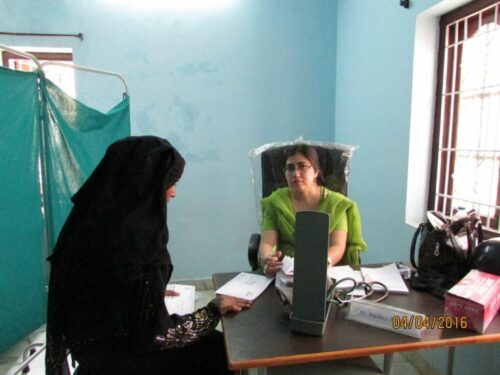
What shines a brighter light on team SEED’s grit is the fact that all this work is driven from a city that’s continents away from its target base. While the government denied the trust’s application to open a branch in India, its voluntary members continue to oversee the work undertaken by its funding via constant virtual follow ups with the partners.
Fortunately, an organisation that was already capable of sustaining virtually did not face any major changes with the onset of the pandemic. However, as Mujtaba Askari explains, on-ground operations like the influx of patients had seen a reduction in scale due to people’s wariness of contact.
The action-driven entrepreneur has made it clear, “We don’t do this for fame, we do it only to help our people.”
So don’t worry if you were unaware of this ongoing wave of change till now. But if you’d like to contribute to it, head to https://seedusa.net/.
All images have been taken from the website of SEED USA.
Edited by Divya Sethu
No comments:
Post a Comment